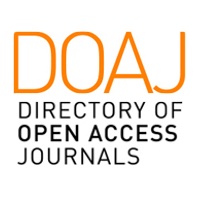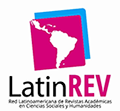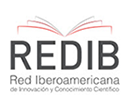Teachers, school and curriculum constituting the course of a subject
DOI:
https://doi.org/10.31639/rbpfp.v14i29.515Keywords:
Teachers in formation. Curriculum. School. SubjectAbstract
The purpose of this article is to problematize and to present a constitution of the discipline Curriculum Theories, part of the curricular matrix of an Education Graduate Program from São Paulo. The aim is to highlight the pathway of the subject, through studies of theories of the curriculum that happened by classification and theoretical framework and by studies of cultural history, which allowed the movement from the common place of the subject’s framework. In this way, it would be of interest to question the possibilities of making a discipline that incorporated the studies from the comprehension and meaning of modern school, allowing it to grow forward in its conceptual aspects as in the primary schooling aspect and apparatus. The text was constructed according to a bibliographic methodology using the authors and works that composed the discipline. It can be said that the incorporation of corollary studies from the theory of the modern school form offered to the discipline and to the understanding of the curriculum the possibility of an interpretative turn.
Downloads
References
ALTHUSSER, L. Aparelhos Ideológicos de Estado: notas sobre os Aparelhos Ideológicos de Estado. Trad. Valter Jose Evangelista e Maria Laura Viveiros de Castro. São Paulo: Graal, 2003.
APPLE, M. Ideologia e Currículo. Trad. Carlos Eduardo Ferreira de Carvalho. São Paulo: Brasilense, 1982.
BIOTO-CAVALCANTI, P. A. A proposição do professor moderno. Jundiaí: Paco Editorial, 2011.
BOURDIEU, P. (2003). A Escola conservadora: as desigualdades frente à escola e à cultura. In: BOURDIEU, P. Escritos de educação. Rio de Janeiro: Vozes, 2003.
BOURDIEU, P. & PASSERON, Jean Claude. A reproducão: elementos para uma teoria do sistema de ensino. 3. ed. Rio de Janeiro: Francisco Alves, 1992.
FOUCAULT, M. Nascimento da Biopolítica. São Paulo: Martins Fontes, 2008.
GIROUX, H. A. Os professores como intelectuais: rumo a uma pedagogia crítica da aprendizagem. Porto Alegre: Artes Médicas, 1997.
GOODSON, I. F. A construção social do currículo. Lisboa: Educa, 1997.
HAMILTON, D. Notas de lugar nenhum: sobre os primórdios da escolarização moderna. Revista Brasileira de História da Educação, 1, p. 45-73, 2001.
LOPES, A. C. & MACEDO, E. Teorias de Currículo. São Paulo: Cortez, 2001.
MOREIRA, A. F. B. Currículos e Programas no Brasil. Campinas: Papirus, 1990.
NARODOWSKI, M. Infância e poder: conformação da Pedagogia Moderna. Trad. Mustafá Yasbek. Bragança Paulista: Ed. Universidade São Francisco, 2001.
PACHECO, J. A. Currículo: teoria e práxis. 3. ed. Porto: Porto Editora, 2001
PINNAR, W. A Política de raça e gênero da reforma curricular contemporânea nos Estados Unidos. Currículo sem fronteiras, 6, p. 126-139, 2006.
PINNAR, W. Multiculturalismo malicioso. Currículo sem fronteiras, 9, p. 149-168, 2009.
PINNAR, W. William Pinnar entrevista. Revista Teias, 22, p. 187-208, 2010.
SILVA, T. T. Documentos de Identidade: uma introdução às teorias críticas de currículo. 2. ed. Belo Horizonte: Autêntica, 2017.
SILVA, T. T. Identidades Terminais: as transformações na política da pedagogia e na pedagogia da política. 3. ed. Petrópolis: Vozes, 2009.
TYLER, R. Princípios Básicos de Currículo e Ensino. Trad. Leonel Vallandro. Porto Alegre: Globo, 1975.
VARELA, J. & ALVAREZ-URIA, F.A maquinaria escolar. Teoria e Educação, Porto Alegre, 6, p. 68-96, 1992.
VINCENT, G. & LAHIRE, B. & THIN, D. Sobre a história e a teoria da forma escolar. Educação em Revista, Belo Horizonte, 33, p. 7-47, 2001.
Downloads
Published
How to Cite
Issue
Section
License
Copyright belongs exclusively to the authors. The license rights used by the journal are the Creative Commons Attribution-NonCommercial 4.0 International (CC BY-NC-SA 4.0) license: sharing (copying and distribution of material in any medium or format) and adaptation (remixing), transformation and creation of material from the content are allowed.































